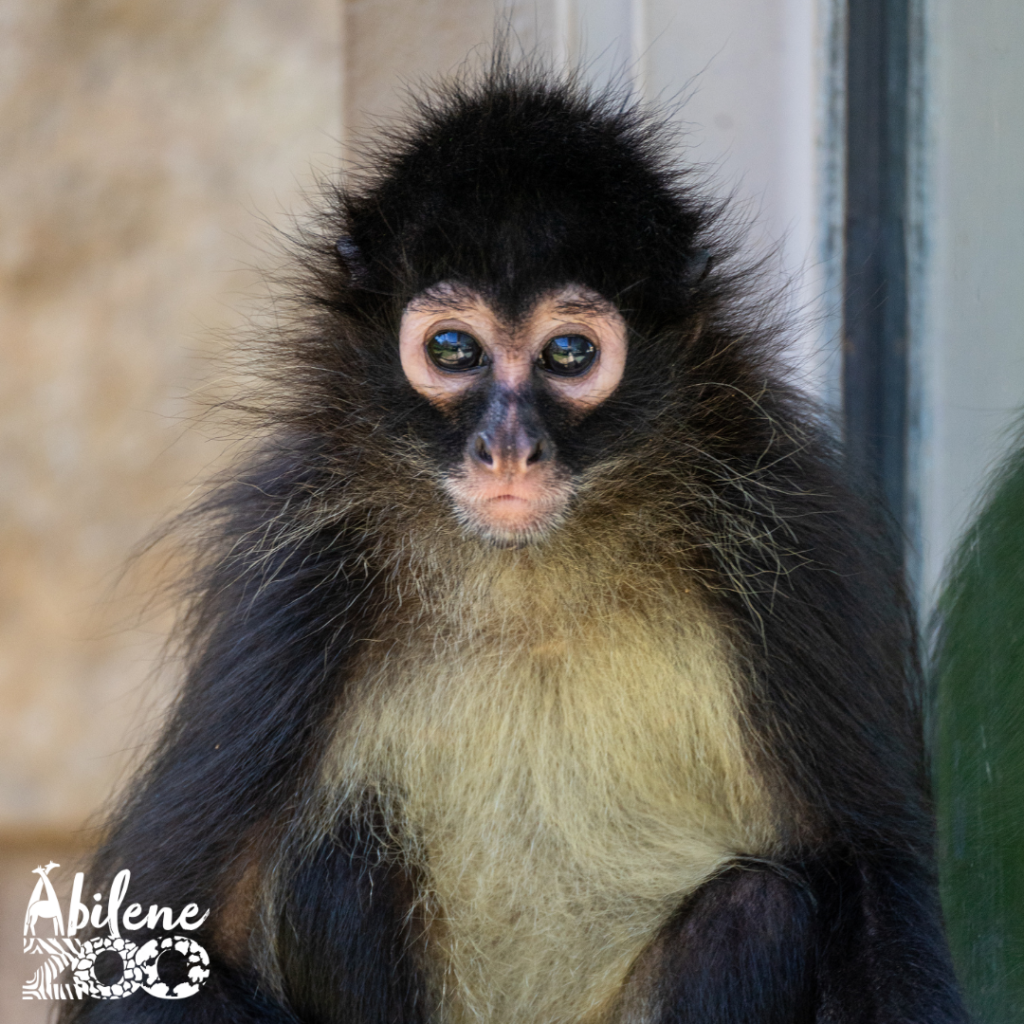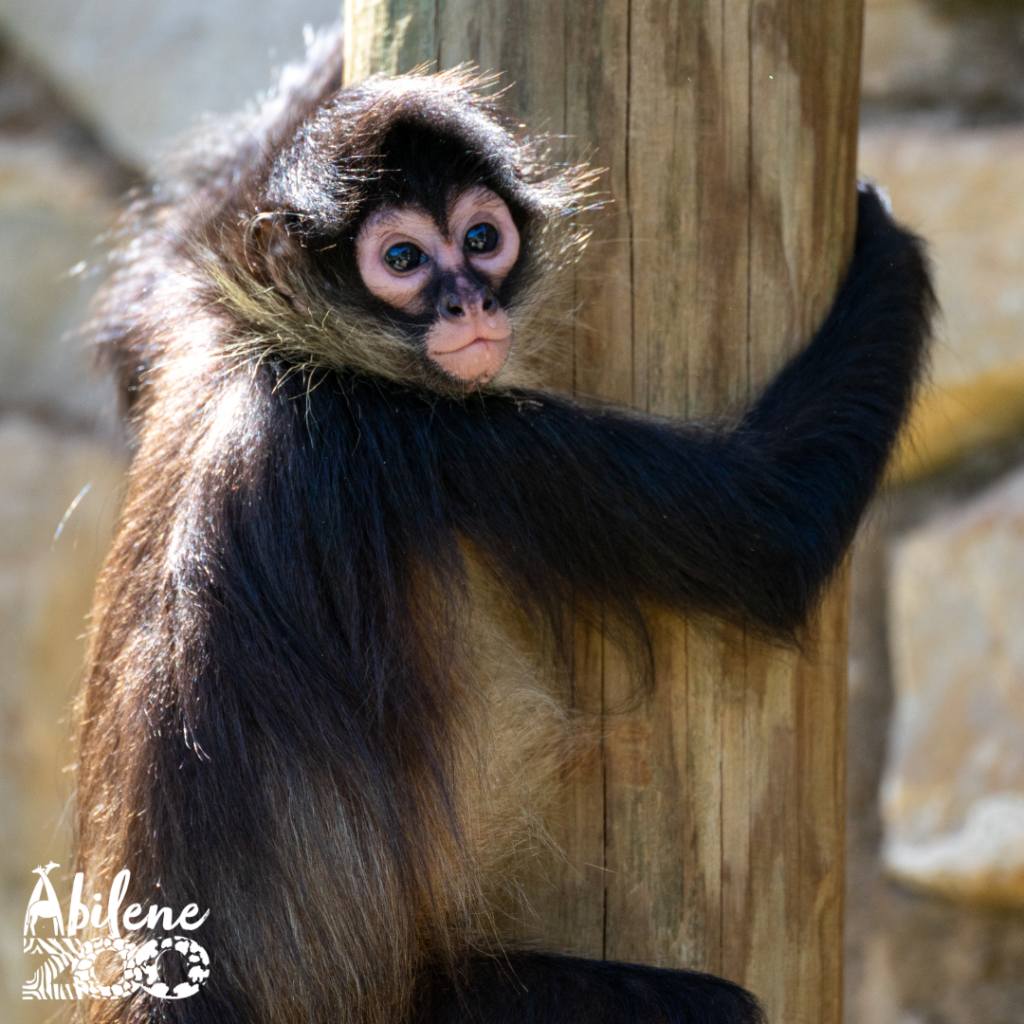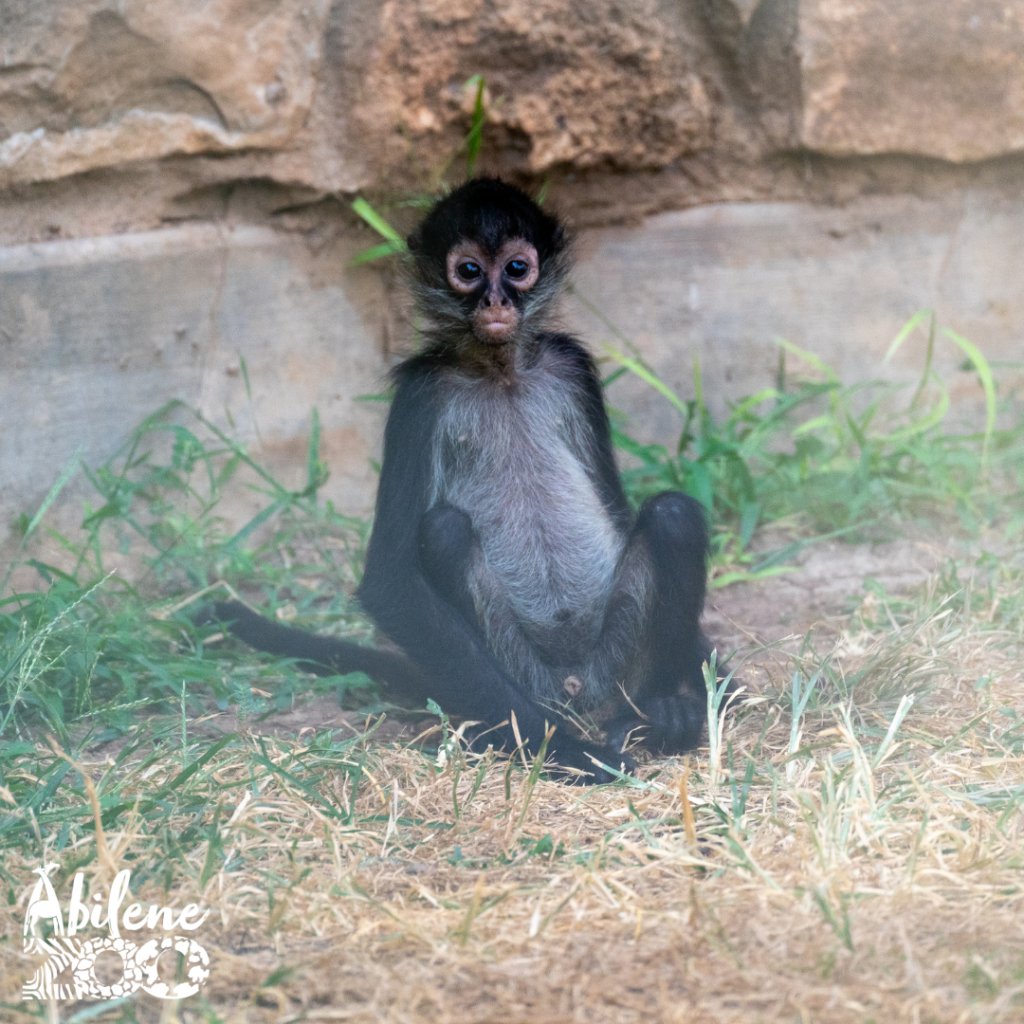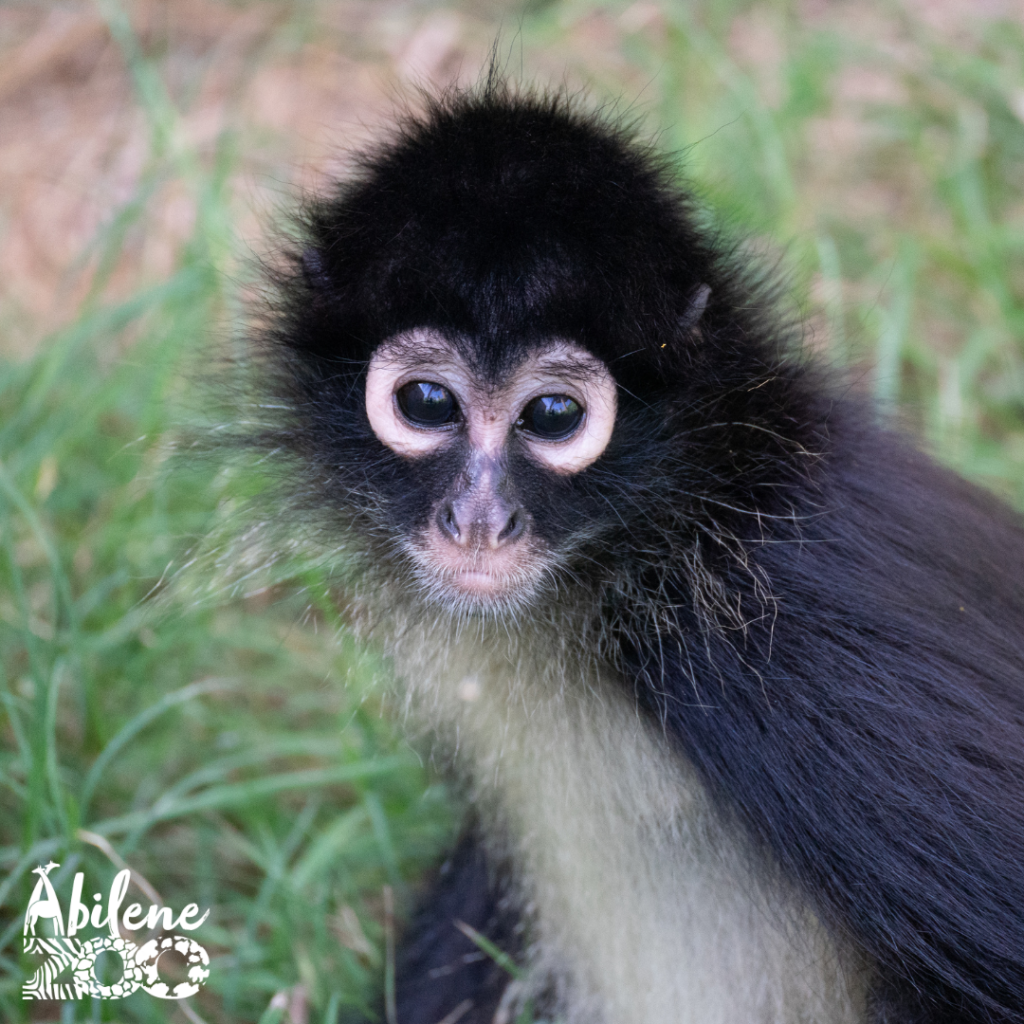Abilene Zoo has welcomed four new young spider monkeys who were rescued from the illegal pet trade. This addition includes two females, approximately 11 months old, and two males, around 6 months old. These vulnerable infants were confiscated by authorities in separate incidents and are now under the expert care of the Abilene Zoo team.
The two males were found at the border crossing in Brownsville, hidden in crates inside a vehicle. These two babies, among others, were temporarily housed at the Gladys Porter Zoo until permanent homes could be found. The two females were discovered in a private residence in the Houston area. Since the monkeys had been acquired illegally, they had to be surrendered to the U.S. Fish and Wildlife Service.
The illegal pet trade is a critical issue, and South Texas zoos are feeling the impact of the illegal trade of spider monkeys. Spider monkeys are often captured in the wild by shooting the adults from the trees, leaving the orphaned babies to be trafficked. These young monkeys, sometimes only weeks old, are subjected to traumatic conditions. They are transported to the border to then be hidden in compartments within vehicles, which often result in severe injuries or death. Once across the border, they are sold to intermediaries who distribute them to private owners. The farther they travel, the higher their value becomes.


Zoos are increasingly called upon to care for these rescued animals. Currently, the Gladys Porter Zoo is caring for nearly 20 infant Mexican spider monkeys. As these facilities reach full capacity, they reach out to other zoos for assistance. Abilene Zoo is honored to provide a safe space for these four new arrivals.
“The four adult spider monkeys currently residing at the zoo were also confiscated from illegal pet trade more than 20 years ago.” mentioned Robert Trejo, Abilene Zoo’s animal curator. “Now, the zoo is tasked with integrating these four young ones into the established troop. This process will be done carefully to ensure a successful and harmonious introduction.”
Spider monkeys live in tight-knit family groups, known as troops, which have complex social structures. The introduction of the new babies to the existing troop will be a gradual process, starting with visual introductions to ensure acceptance and minimize stress.
Abilene Zoo emphasizes that spider monkeys require specialized care and can carry diseases transmissible to humans, making them unsuitable as pets. By sharing these stories, the zoo aims to discourage the illegal pet trade and promote conservation efforts.
“All spider monkey species are endangered, some species are on the critically endangered list,” remarked Jesse Pottebaum, Abilene Zoo’s director. “The plight of these species highlights the urgent need to address illegal pet trade. Our role as an AZA-accredited facility is to not only care for these animals but also to educate the public about the devastating impact of this illicit industry.”
Abilene Zoo invites the community to learn more about the illegal pet trade and support efforts to protect these creatures. The zoo’s mission is to inspire a respect for nature through education and conservation, and we hope to raise awareness about the decrease of spider monkeys and other wildlife affected by illegal pet trade.

